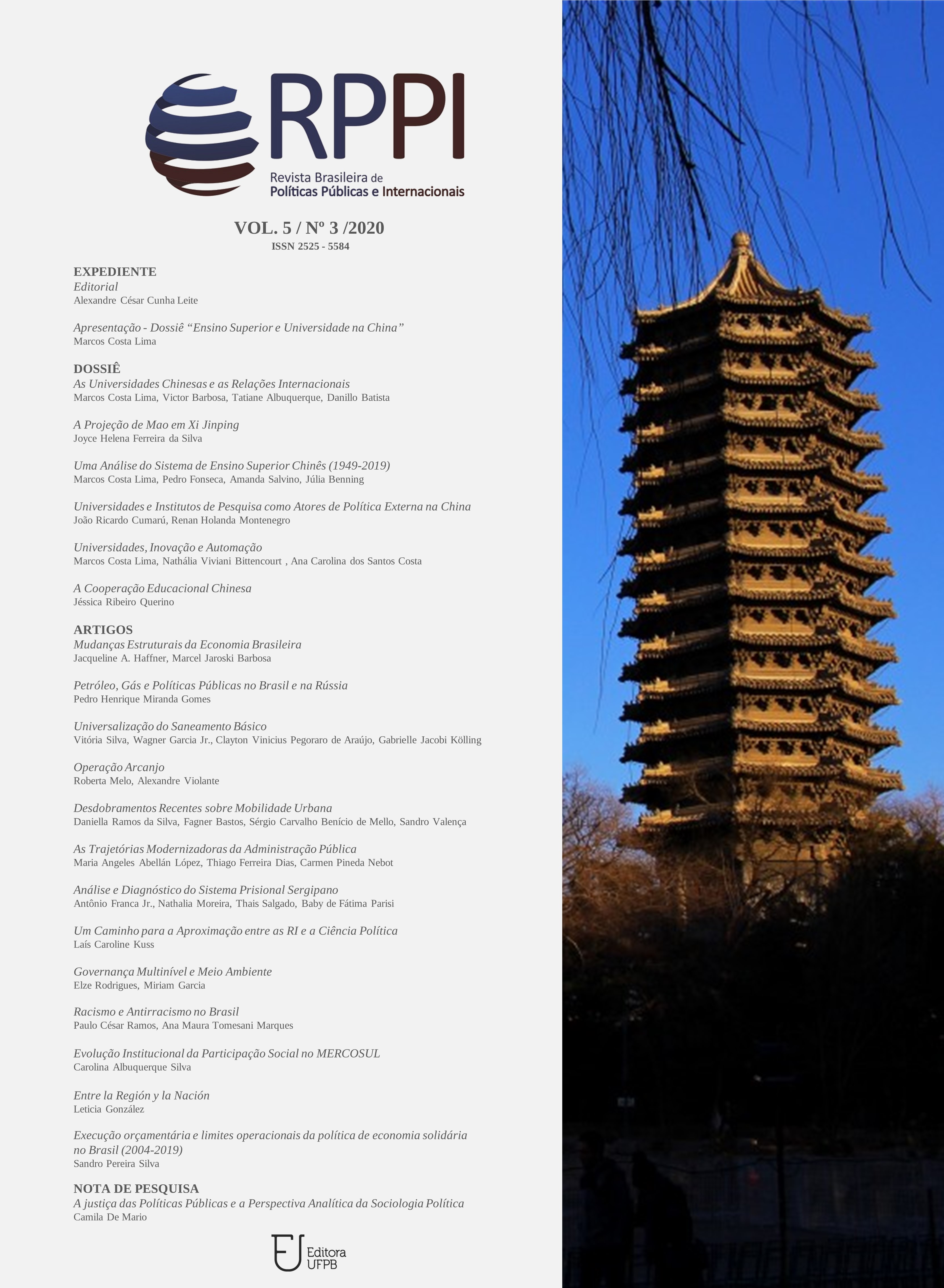A Pathway to the Rapprochement between the IR and Political Science
dialogue between Foreign Policy Analysis and Public Policy Analysis
DOI:
https://doi.org/10.22478/ufpb.2525-5584.2020v5n3.53633Keywords:
foreign policy, public policy, cooperation, ProsavanaAbstract
Foreign Policy Analysis (FPA) is a subfield of International Relations in which it is intended to analyze how States' foreign policy decisions are made, based on the actors and processes that influence them. In his studies, there is a strong influence of Political Science (PS), especially for its tools. In the same sense, within the PS, the Public Policy Analysis (PPA) subfield brings useful tools and concepts similar to those used in FPA, but little is said about this rapproachement. It is from this, that it is intended, in this reseach, to present pathways of rapprochement between the PS and the IRs, through the approximation between the FPA and the PPA, focusing on a PPA tool for studying the formation of an agenda in International Cooperation for Development (ICD). The first section is dedicated to the presentation of the FPA and PPA and the second to the rapproachement between the two, applied to a case of ICD, the ProSAVANA program insertion into the Triangular Cooperation between Brazil, Japan and Mozambique.
Downloads
Downloads
Published
Issue
Section
License
Autores que publicam nesta revista concordam com os seguintes termos:- Autores mantém os direitos autorais e concedem à revista o direito de primeira publicação, com o trabalho simultaneamente licenciado sob a Licença Creative Commons Attribution que permite o compartilhamento do trabalho com reconhecimento da autoria e publicação inicial nesta revista.
- Autores têm autorização para assumir contratos adicionais separadamente, para distribuição não-exclusiva da versão do trabalho publicada nesta revista (ex.: publicar em repositório institucional ou como capítulo de livro), com reconhecimento de autoria e publicação inicial nesta revista.
- Autores têm permissão e são estimulados a publicar e distribuir seu trabalho online (ex.: em repositórios institucionais ou na sua página pessoal) a qualquer ponto antes ou durante o processo editorial, já que isso pode gerar alterações produtivas, bem como aumentar o impacto e a citação do trabalho publicado (Veja O Efeito do Acesso Livre).




_.jpg)






.png)


.jpg)
_.png)
